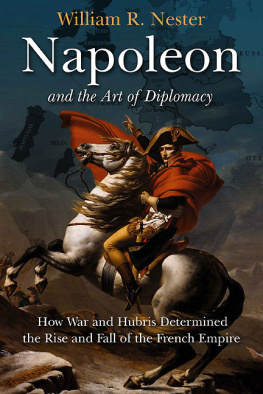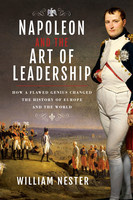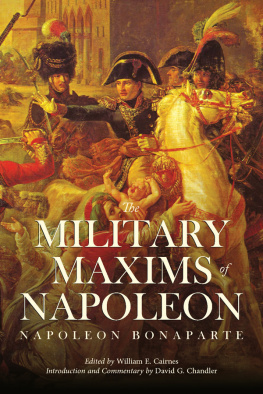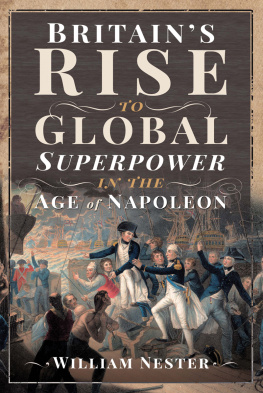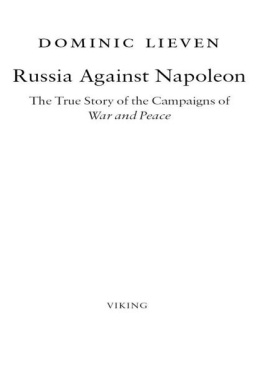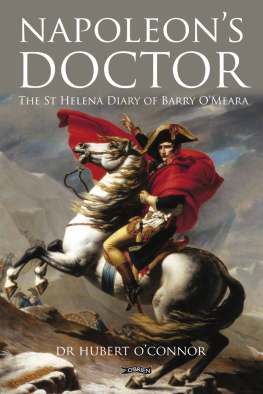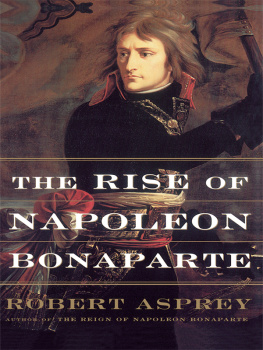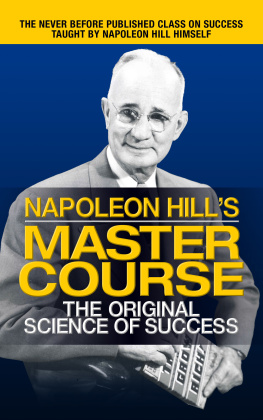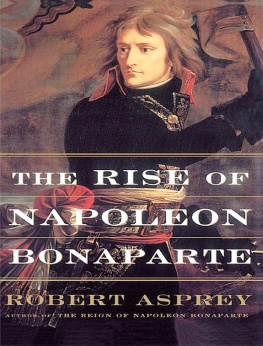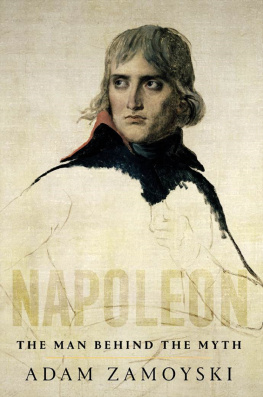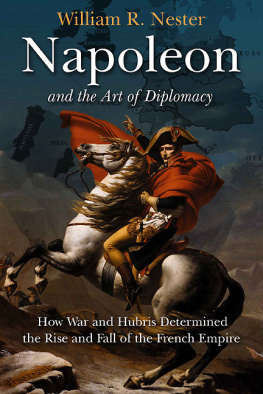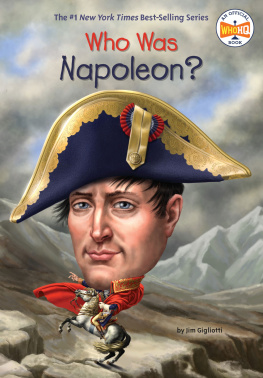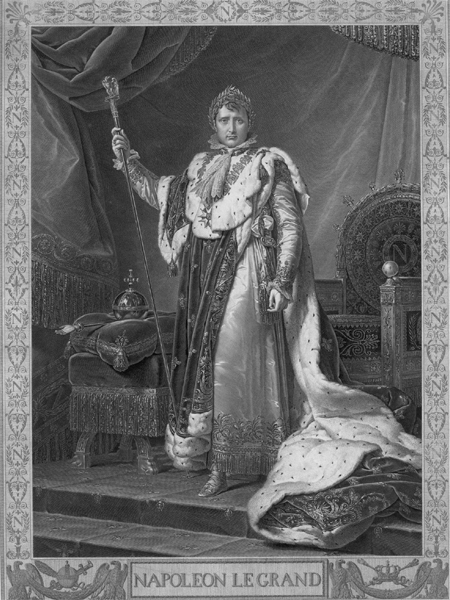
Napoleon le Grand
Library of Congress
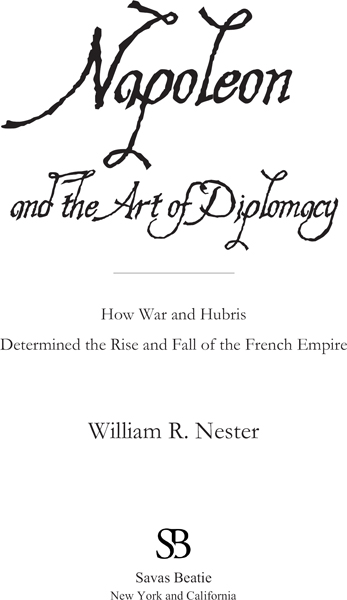
2012 by William R. Nester
All rights reserved. No part of this publication may be reproduced, stored in a retrieval system, or transmitted, in any form or by any means, electronic, mechanical, photocopying, recording, or otherwise, without the prior written permission of the publisher. Printed in the United States of America.
Cataloging-in-Publication Data is available from the Library of Congress.
ISBN-13: 978-1-61121-092-7
eBook ISBN: 978-1-61121-093-4
05 04 03 02 01 5 4 3 2 1
First Savas Beatie edition, first printing

Published by
Savas Beatie LLC
521 Fifth Avenue, Suite 1700
New York, NY 10175
Editorial Offices:
Savas Beatie LLC
P.O. Box 4527
El Dorado Hills, CA 95762
916-941-6896
sales@savasbeatie.com
Savas Beatie titles are available at special discounts for bulk purchases in the United States by corporations, institutions, and other organizations. For more details, please contact Special Sales, P.O. Box 4527, El Dorado Hills, CA 95762, or you may e-mail us at sales@savasbeatie.com, or visit our website at www.savasbeatie.com for additional information.
Proudly published, printed, and warehoused in the United States of America.
Table of Contents
List of Maps
Introduction
Diplomacy is essential and inseparable from war.
Napoleon
War is hardly the only subject of diplomacyonly the most dramatic and vital. Depending on who is involved, what they want, and what means they use to get what they want, diplomacy can determine the fate of nations, continents, or, in modern times, every person on the planet. Yet no matter what the stakes are, diplomacy is inseparable from virtually any conflict, whether it is primarily military, economic, ideological, cultural, social, or personal.
Napoleon Bonaparte is best known as a military genius. Was the power that he wielded to assert his foreign policy nothing more than the power to conduct war, or to threaten to do so? Warriors are not generally known for their diplomatic skills; conquerors are accustomed to imposing rather than negotiating terms. Yet, contrary to the popular image, Napoleon often was just as brilliant and successful at diplomacy as he was at war. Indeed, as will be seen, he nearly always thought a dozen or so moves ahead on as many distinct or related diplomatic chessboards. Alas, at times he could also be as disastrous at diplomacy as he was at war. And regardless, depending on circumstances, he could be a model either of decorum or brutality.
For Napoleon, the arts of war and diplomacy meshed. If Karl von Clausewitz famously asserted that war is the continuation of politics by other means, Napoleon added the truism that diplomacy can be the continuation of war by other means: Diplomacy is essential and inseparable from war. Ideally, diplomacy makes war unnecessary; if not, it can precede, join, and end a war so that it advances one's interests.
Napoleon therefore usually mapped out his grand diplomatic strategy as carefully as he did his military campaigns. Most of his own correspondence as well as the memoirs of other participants reveal Napoleon to have been a genuine master of diplomacy. When relating to his diplomatic foils, Napoleon at his best paid very careful attention to protocol and was sensitive to the most subtle of nuances even as he systematically presented the rational and emotional arguments for his positionuntil the other yielded.
Many believed then and have since that Napoleon was an insatiable aggressor who caused all the wars that he fought as head of state. Actually, he entered most wars with reluctance, only when he believed he had exhausted his diplomatic options. He acted thus when he needed a crushing military victory to bolster his diplomatic power, with which he could negotiate a peace that would further bolster French national security. Each war that he fought as the head of France from 1800 to 1815, and the diplomacy surrounding it, had its own distinct set of causesfor which blame can be widely shared among the great powers.
Napoleon's diplomatic skills, like his military skills, varied considerably from one conflict to the next. Not surprisingly, his finesse decreased as he amassed more power. Years of military and diplomatic victories, along with the grandeur of being Emperor Napoleon rather than General Bonaparte, swelled his hubris and blinded him to the vital need for the restraint and symbolic compromises by which he could win his ends without savaging his opponent's pride and provoking an obsession for vengeance.
In Napoleon's mind, there was a clear rationale for that shift in diplomatic approach: the bitter lessons of previous experiences. He concluded that appeasement just did not work. The Austrians especially would not give up. In concluding the first two wars against them, Napoleon offered relatively mild terms, at Campo Formio in 1797 and Luneville in 1801. But Austrian aggression in 1805 forever changed his mind about mild versus harsh peaces. Starting then, Napoleon abandoned a diplomatic strategy of compromise and inducement for one of punishment, containment, and deterrence. No longer would he offer more carrots than sticks. He would instead seek to chastise and weaken rather than reward and entice. He would take much and give little or nothing. His attitude toward diplomacy became, Take it or leave it. Once a treaty had been negotiated and publicized, the monarch in question had better swiftly ratify it, because any later set of terms would be much harsher.
Napoleon's art of diplomacy also mirrored his art of war at the negotiating level, the tactical level. His axiom, one engages and then one sees captures his improvisory approach to tactics. He would probe to provoke a response that revealed the enemy's position, and only then devise a more comprehensive plan.
But when that did not work he unleashed a style of personal diplomacy that can be called the Napoleon treatment, in which he would wear down his opponent with an unceasing bombardment of mingled threats and allurements, bluster and charm, and arguments rooted in cold reason and warm feelings, before finally marching his most important demands at the enemy's weakest positions. Most of the time the outraged, bewildered, and intimidated foreign envoy would sooner or later capitulate to his demands.
Armand Augustin de Caulaincourt, one of Napoleon's finest diplomats and ministers, left the following lengthy description of what it was like to be on the receiving end:
The harder the Emperor found it to persuade me, the more art and persistence he put forth to attain that end. His calculated wiles and the language he used would have made anyone believe that I was one of the powers whom he was so much concerned to win over. He acted so towards all whom he wished to persuade, and he always wanted to persuade someone. I enter into these details because they delineate his character. Certain is it that the success which he was accustomed to obtain thus must be his predilection for dealing with sovereigns, and his habit of dealing in any particularly delicate and important matters directly with the ministers and ambassadors of foreign powers. When he so wished there could be a power of persuasion and fascination in his voice, his expression, his very manner, which give him an advantage over his interlocutor as great as the superiority and flexibility of his mind. Never was there a man more fascinating when he chose to be; to withstand him one had to realize, as I did, the political errors which lay concealed beneath his art, often specious but always clever and full of apt comparisons as useful to illustrate his own ideas and to conceal the end he wished to obtain. He never failed to shift the center of argument when he encountered opposition. Woe to him that admitted a single modification, for the adroit interlocutor led him from concession to concession to the end he had in view.
Next page
